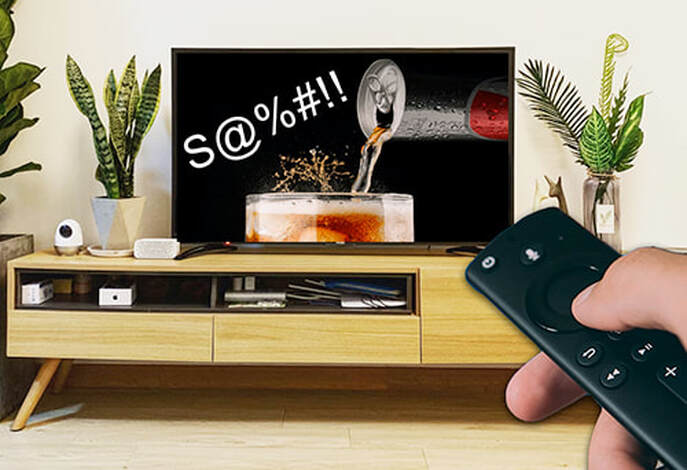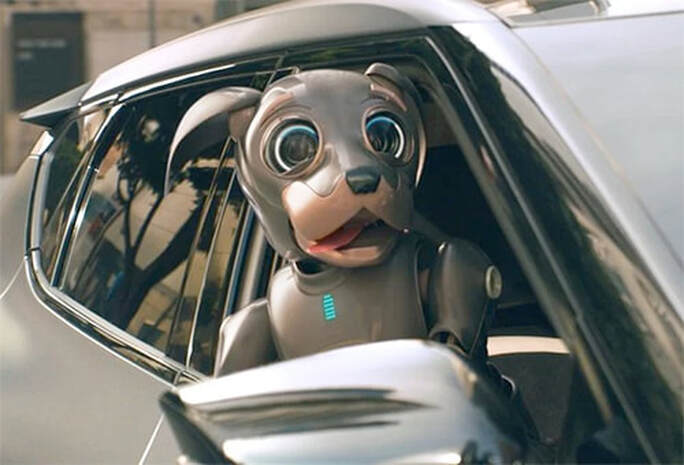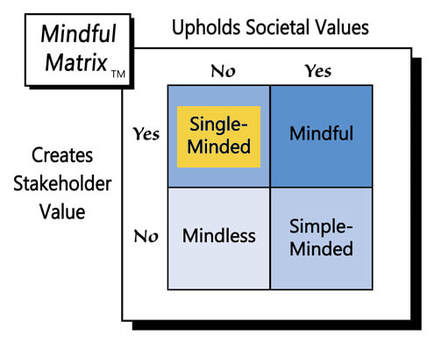author of Honorable Influence - founder of Mindful Marketing
Despite the fact that 30 seconds during the 2022 sports spectacle reached an astounding $7 million per spot, NBC sold out its ad inventory, with a very high percentage of those spots leveraging humor, including some rather crude comedy. If companies are willing to pay more for a half minute of airtime than most organizations’ entire annual marketing budgets, why wouldn’t they want to muster more ‘serious’ sponsorship efforts? What’s with all the advertising irreverence?
Of course, Super Bowl ads have a long history of hilarity—traditionally, many ads made for the big game are funny, probably to align with the event’s party atmosphere, which often flows with the same sodas and snack foods seen in the spots. Humor now is an annual expectation such that sponsors who make the contrarian choice to air more sober ads often reap the consequences of lackluster reviews.
Perhaps for these reasons, many advertisers have continued to push the envelope on humor, to the point that their MO is: ‘Go Irreverent or Go Home.’
Underlying this observation is the notion that there’s a difference between ordinary humor and irreverent humor. According to the Collins Dictionary, something is humorous if people find it amusing, clever, or witty. Ephrat Livni, writing for Pocket, further unpacks the essence of wit:
“The wittiest among us are simply people who make unusual connections between words and ideas. There’s a refreshing element of surprise to these observations that prompts a smile or a wince from the listener who didn’t see the link until it was presented.”
Beyond just being witty, irreverent humor adds abrasion to the comedic equation in the form of disrespect “for people or things that are generally respected.” In other words, irreverent humor not only makes a clever and surprising connection between concepts, it also throws some significant shade on a group of people.
This distinction between regular humor and irreverent humor makes some sense in the abstract, but it’s better explained through specific examples. So, here are a couple of Super Bowl LVI ads aimed at painting a clearer picture of the difference.
Regular Humor: Kia – Robo Dog
After watching a real dog playing happily with its owners, an electronic pooch on display in a department store longs for its own human companion, leading it to chase the driver of an electric Kia. Aiming for the car’s open moon roof, the love-starved dog leaps from atop a tall building, only to have its battery die, just before entry into the vehicle.
Thankfully, the dog awakens from its untimely slumber to find that the Kia driver has resuscitated it, courtesy of a cable plugged into the EV’s charging port.
This commercial is humorous for a variety of reasons, including its clever connection between an electronic dog and an electronic vehicle, as well as the surprising idea of a dog desiring an owner so badly that it chases one across a city. The spot doesn’t arouse bellyache laughter, but the unique feel-good mini story does encourage at least a hearty chuckle.
Irreverent Humor: ClickUp – Declaration
While many consider the authors of America’s Declaration of Independence heroes, ClickUp’s commercial depicts many of them as bumbling fools, particularly the nation’s second president, John Adams, who somehow misplaces the newest version of the foundational document.
The situation worsens as the flustered Adams stumbles into an artist who’s trying to capture the historic moment on canvas, causing him to spread white paint across the famous scene. The commercial concludes with Ben Franklin commending “Tommy” (Thomas Jefferson) for smartly creating a ClickUp task, as well as for “always saving John’s derriere.”
The ad is witty for several ‘regular’ reasons, including that it cleverly compares the centuries-old methods used to draft the Declaration of Independence to today’s digital technology. It’s also amusing to see men wearing neck cloths and knickers gush over a laptop app.
However, the humor is irreverent because of its disrespect for America’s founding fathers, especially Adams. These men risked their reputations and their lives to stand against colonialism and create one of the most impactful documents the world has known. Of course, the ad is meant in jest, yet it seems impertinent to lampoon these patriots for a courageous and momentous act that has meant unprecedented freedom for so many.
So, why would Super Bowl advertisers like ClickUp and those mentioned above (Uber Eats, Plant Fitness, and Lays) want to risk alienating tens of millions of consumers with irreverent advertising? It’s because one specific and highly sought-after target market appears to love the impertinence—Generation Z.
For this cohort of 10–to-25-year-olds, the rule of thumb is often ‘the more brash the better.’ However, the reason “Gen Z demands absurdity from their ads” seems counterintuitive at first.
What Gen Z actually craves is authenticity. Its members can smell a fake a mile away, and they detest phoniness, including in traditional advertising. Gen Zers deduce, “I know you’re trying to sell me something, so stop pretending that you’re not.”
The advertising that this savvy young cohort finds most appealing is the kind that makes no pretense of selflessness; rather, it admits it’s pushing product through unconventional creative approaches that are often so over-the-top they’re laughable:
“Gen Z’s take on authenticity is pushing brands to break all previously established rules of brand communication.”
A good example of Gen Z’s affinity for absurdity is the off-beat soap brand Dr. Squatch. While coming of age, those of us in older generations had little concern about the suds we used to shower. However, thanks to Dr. Squatch’s crazy ads, such as one with a bearded guy in a shower cap, bathing in the woods with a rubber ducky, many in Gen Z are taking their soap choice more seriously.
The humor in the Dr. Squatch ad is certainly absurd, but is it also irreverent? Although it’s outlandish by traditional advertising standards, most of the commercial’s content is pretty mild in terms of immorality. For instance, one actor playfully douses another with what are purportedly chemicals found in typical, unnatural soaps.
One could argue that such antics disrespect the guy getting doused, but the action is clearly hyperbole, and it’s hard to claim there’s contempt for any specific people group.
The same logic probably also applies to Pringles 2022 Super Bowl spot “Stuck,” which tells the story of a young man who gets his hand wedged into one of the iconic canisters and ends up living his entire life with the snack food package appendage.
In this instance, Pringles is really laughing at itself for manufacturing such an awkward piece of packaging. Its self-deprecating humor may seem like a risky move; however, when people or in this case a company pokes fun at itself, it often stops others from doing the same, perhaps out of pity, or maybe out of respect—‘It takes a strong person to admit they were wrong.’
In his book, The Power of Regret, Daniel Pink reinforces this principle, maintaining that when individuals openly express their regrets to others, people surprisingly hold the soul bearers in higher regard, not lower.
On the other end of the humor/respectability continuum is a company like Liquid Death Mountain Water, which placed a bet, picking the underdog to win the Super Bowl LVI, then hired a witch to try to influence the game’s outcome.
One of the company’s commercials from a couple of years ago contained so many offensive elements that it’s challenging just to list them, e.g., profanity, vulgarity, stereotyping, allusions to the occult, and insensitivity to those who have lost loved ones to drowning and to overdosing on energy drinks. To top it all off, the commercial even demonstrates torture by waterboarding.
Advertising humor, like much human behavior, involves a range of action from the simply benign to the very bad, from innocently amoral to dangerously immoral.
In a classic article published in the Journal of Public Policy & Marketing, “Advertising: Looking Glass or Molder of the Masses?” Geoffrey Lantos posed an important question: Does advertising simply reflect what people are already doing or does it preemptively shape society’s behavior?
While it’s certainly worth asking that question of irreverent humor, the answer doesn’t necessarily matter. Whether it molds or mirrors, advertising that’s effective but disrespects others isn’t edifying in either sense. Instead, it amounts to “Single-Minded Marketing.”
Learn more about the Mindful Matrix.
Check out Mindful Marketing Ads and Vote your Mind!






 RSS Feed
RSS Feed